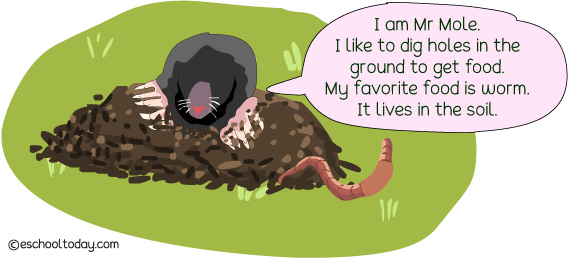- Soils
Importance (Functions) of Soils
Soils are essential for life, in the sense that they provide the medium for plant growth, habitat for many insects and other organisms, and act as a filtration system for surface water, carbon storage, and maintenance of atmospheric gases. Let us take a closer look at each of these:
Medium for plant growth:
- Soils support roots and keep them upright for growth.
- Soils provide plants with essential minerals and nutrients.
- Soils provide air for gaseous exchange between roots and the atmosphere.
- Soils protect plants from erosion and any other destructive physical, biological, and chemical activity.
- Soils hold water (moisture) and maintain adequate aeration.
Habitat for many insects and other organisms:

- Insects and microbes (very tiny single-cell organisms) live in the soils and depend on soils for food and air.
- Soils are homes to a diverse range of organisms such as worms and termites. They provide the needed moisture and air for the breakdown of organic matter. (learn more about soil ecosystem)
- They provide a home for many organisms such as insects to lay and hatch eggs and rodents to give birth to new offspring.
A filtration system for surface water:
After rainfall and snowmelts, water flows on the earth’s surface to water bodies, but much of it soaks and gets infiltrated into the ground. As it continues its way downwards through the many layers in the ground, it is filtered from dust, chemicals, and other contaminants. That is why aquifers (underground water) are one of the purest sources of water. Filtered water also provides plants with clean, unpolluted water needed for growth.
Carbon storage and maintenance of atmospheric gases:
Soils help regulate atmospheric Carbon dioxide by acting as a carbon store. During humification (a process where soil organisms form complex and stable organic matter) some organic matter breakdown does not occur completely, especially in soils like peat, owing to its high acid and water content.
On a global scale, soils contain about twice as much carbon as the atmosphere and about three times as much as vegetation.
This results in the accumulation of organic matter in the soil which is high in carbon content. Nitrogen, phosphorus, and many other nutrients are stored, transformed, and cycled in the soil.
